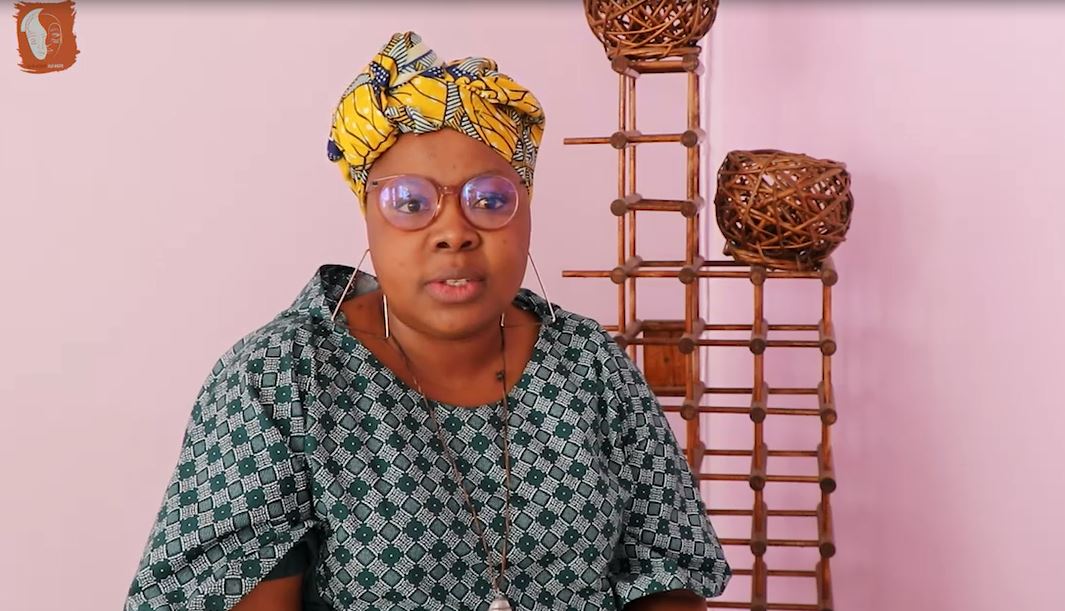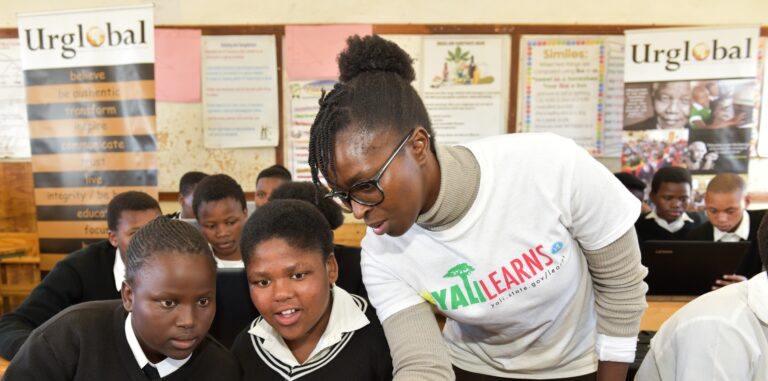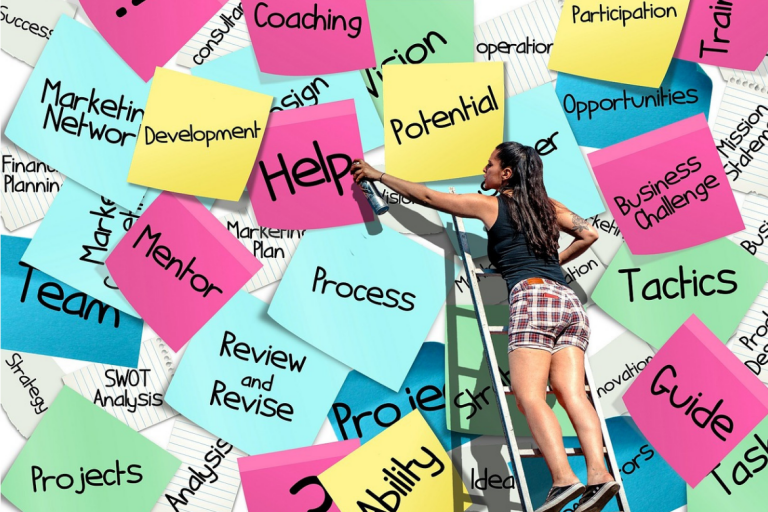Warrior Woman with Nosipho Vidima
Nosipho Vidima is a Human Rights Activist who is a tireless supporter of women’s rights, working with Sex Workers Education and Advocacy Taskforce (SWEAT) fighting for the decriminalisation of sex work. In this Matoyana Media interview we spoke to Nosipho about what it means to be a Warrior Women in South Africa and much more.
Hi Nosipho, tell us a bit about yourself?
“I come from Kwa-Zulu Natal. I am a mother to one boy on my fridge right now and I have two siblings, on my mother’s side. I am an activist, so I try to find justice in an unjust world – for marginalised communities. I’ve been doing that for more than seven years now – at both grassroots level and national level. Yeah that’s me.”
You work with SWEAT?
“Yes, the Sex Workers Education and Advocacy Taskforce. We advocate for the decriminalisation of sex work. The reason why we actually focus on sex workers is because sex workers are one of the marginalised and most vulnerable communities. Because of stigma and the moral issues, most people tend to shy away from the real facts that sex workers on the streets face rapes and gender based violence and unjust arrests.
Sex workers are forced into sexual bribes by police officers and because of the criminal element within sex work itself; it means that they can’t even report such cases. This is why we do the work that we do, so that we are available for such things, for women to come and report cases, for us to give support and just really try to find justice for them. Even though we know that the courts are not really a place of justice – we see a lot of women just in the townships, in the world we live, who can’t get justice out of court, for things like rape. Most women are dying with protection orders.
What we try and do is just try to keep everybody safe – be with the person, give them support, go with them to court. Even if it means that we need to assign a human rights defender to take them from the police station, to go and do the rape test kit at the hospital or a Thuthuzela Centre, but somebody is always there with them to take them through those steps. Sometimes women will drop cases because they want to just heal and deal with the trauma that they’re going through on their own.”
What is your definition of a warrior woman?
“I think my modern day woman is a woman who is a go-getter, who is not afraid to speak out, who is not afraid to take action when she sees the oppression of other women. Who is able to fix another woman’s crown without really speaking much. So it’s about upliftment of others that are around you, liberating not just only yourself, but carrying other women with you, that’s what a modern warrior woman is to me. “
Why do you identify as a warrior woman?
“I’m not too sure that I am a modern day warrior woman, but I would think that if somebody was to recognise me – it would be the fact that, on a very controversial issue or topic, one of sex work, I am able to dismiss everything else in order for me to fight for justice – like I said before – in an unjust world. I do this unapologetically and it’s because also I’ve been there. I know what it’s like to not have a voice or to be erased from society because you are doing certain kinds of work, or you identify a certain way. So I’m unapologetic, that’s why I’d be a modern day warrior woman. I do not see any taboo – instead if it needs to be fixed, it needs to be fixed – let’s not leave an elephant in the room.
Let’s start with why sex workers actually get into sex work and why a lot of women do. We live in a country that’s not really economically stable. You find a lot of graduates on our townships not having employment and our government is not about to change that any time soon. While these same women are also women who have children and families, so although it is limited choices that are put in front of them making that choice that I’m not going to be a domestic worker, and earn R5000 per month because it is not actually going to take care of my two siblings and my four kids and my mother and my grandmother, you understand? And I guess I want society to understand that this is a decision that somebody has made in order to put food on the table. Also look at the fact that women’s bodies have been policed forever – and it is time we allow women to choose what they actually do with their bodies. Whether that person is choosing a sexual orientation that is outside of the binary or outside of the norm and identify as lesbian – we should not be policing – we should allow people to practice their own existence truth.”
Tell us about your biggest and most important battle?
“I guess my biggest battle is how men treat women. I mean a small thing like catcalling could do a lot to a woman’s ego; it could do a lot to a woman’s self-esteem and how men treat us in the workplace, how men treat us in intellectual spaces. The mans-plain that happens, the erasure that happens even in the workspace and these intellectual spaces – that has been my biggest battle.”
How do you deal with it?
“We push… We push for our voices to be heard, we push for our voices to not be conflated with views and perspectives that are male dominated. We push for our voices to not be erased while we actually try and change the world and while we are trying to change certain issues in our communities.
Sometimes it’s hard, there are moments where you are like, but I could just go and live like everybody else, and do my job and come back home and not care that my neighbour is beating up her girlfriend or his wife. But there is something that is within me that doesn’t want those situations and crawl into my own rock and not come out. I want to fight, I don’t know why; maybe I just really do not want people to be oppressed in the world. And it could also be that fact that I’ve lived in a situation where I’ve been oppressed; I know what it’s like.”
What are the skills, characteristics or tools for a warrior woman?
“To be able to lead from the back – listening, the key point is actually listening because without really being able to listen you can never really do what is needed with those around you or in your work. Sometimes we think we are still leading and we’ve left the people that we were trying to lead – because we are not listening. So you keep on pushing but maybe people are no longer there and maybe the course has changed. So it’s listening, it’s being able to feel ukuthi, this is where we are. Whether it’s politics or not – we need to feel the people, listen to them, feeling them and to also have the ability to do the hardest work that nobody wants to do. It might be hard, but it needs to be done. Let’s put on our super hero capes and make a better world, that’s all.”
Why is it important for women to see themselves as warriors?
“I think with the history that we have in this country, identifying as a warrior woman or having the characteristics of a warrior woman or forging ahead to make a better world, to give better opportunities, is not only about us… It’s about taking away history and the unjust oppressions that happened to our grandmothers, to our mothers. It’s making sure that with my doing now, the next generation of women could actually have a better world. Whether you are fighting for fair pay in work, you might not realise it now, but you are not just fighting for yourself. But after you’ve gone, 20 years down the line, somebody – a woman will walk into that organisation or that institution and benefit from what you’ve done; this is why we need to do it.”
What type of warrior woman would you describe yourself as and why?
“I’m not too sure! This is the hardest question that I can actually answer. I aspire to be a warrior woman who does not walk alone because we can never really acquire much by walking alone. I aspire to be the warrior woman who has other warrior woman with her. I don’t want to just have freedom for myself only– I want to have freedom for all those I come across, freedom for those I don’t even know. In a sense I would say that, not only in the fight, but also in the freedoms we might actually realise. So we’re out to try to create a Utopia for women, where women can live freely, women can be seen in society. This is important because women are not seen – they are never given the same opportunities – they are raised differently from men. Let’s create societies and communities that build humans.”
What are your words of affirmation?
“Whatever has been told to you – that you can’t do it – is a lie, we can do anything we put our minds to. If you already can see it as a vision, it is already there, all you have to do is put actions into it. No matter how many men try and drag you down, whether it be by rape, narcissism, how they see us – it doesn’t matter. What matters is we actually have to do the work and move forward. It might take a ton of energy out of us, but it is necessary, it is needed.”
Which women warriors do you look up to?
“I want to bring this close to home, it’s my mother, it’s my grandmother and there are a lot of reasons for it. Both these women that I am talking about raised kids without men. On their sides they’ve built lives, they’ve acquired material and un-material blessings. But they’ve also fought the hardest fights that I’ve seen in reality close to me. My mother fought the TRC for my brother’s death. It took a lot out of her, but she never backed down – up until the point where she was able to access compensation, so that she can raise my now brother actually born by my uncle. That for me is my warrior woman, I look up to her, I look up to her for never giving up, for fighting and not backing down.
My grandmother, oooh that woman – my grandmother got divorced and the husband left and went to go live in Durban and never looked back, leaving her with six kids. She had no education; apparently her father never gave her education because he wanted her to watch over the cows. She was still able to raise kids that became nurses, teachers, engineers – you know what I mean. She did it with very little; she says she started being a Shebeen Queen. She’s very religious, but she made Umqombothi and she sold it, and out of selling the traditional African beer, she then bought beers. She keeps on saying to us, “Hey mina I’ve stood in the middle of men and fought for them to get out of my house and fought them to pay me my money.” And to her it’s a small thing, but in those days, being divorced, as a woman, brought shame to you. Owning a Shebeen or being a Shebeen Queen brought disgrace to you – she withstood all of those things. She dismissed everybody’s views on how they saw her, in order for her to put food on the table. For her to raise her kids, to put education on her kids and I don’t know what else is bigger than that.”
Thank you Nosipho for your time and for all the life-changing work that you do.
SWEAT has determined the discussions on a legal adult sex work industry where sex work is acknowledged as work, and where sex workers have a strong voice, which informs and influences wider social debates. Sex worker rights are human rights.






